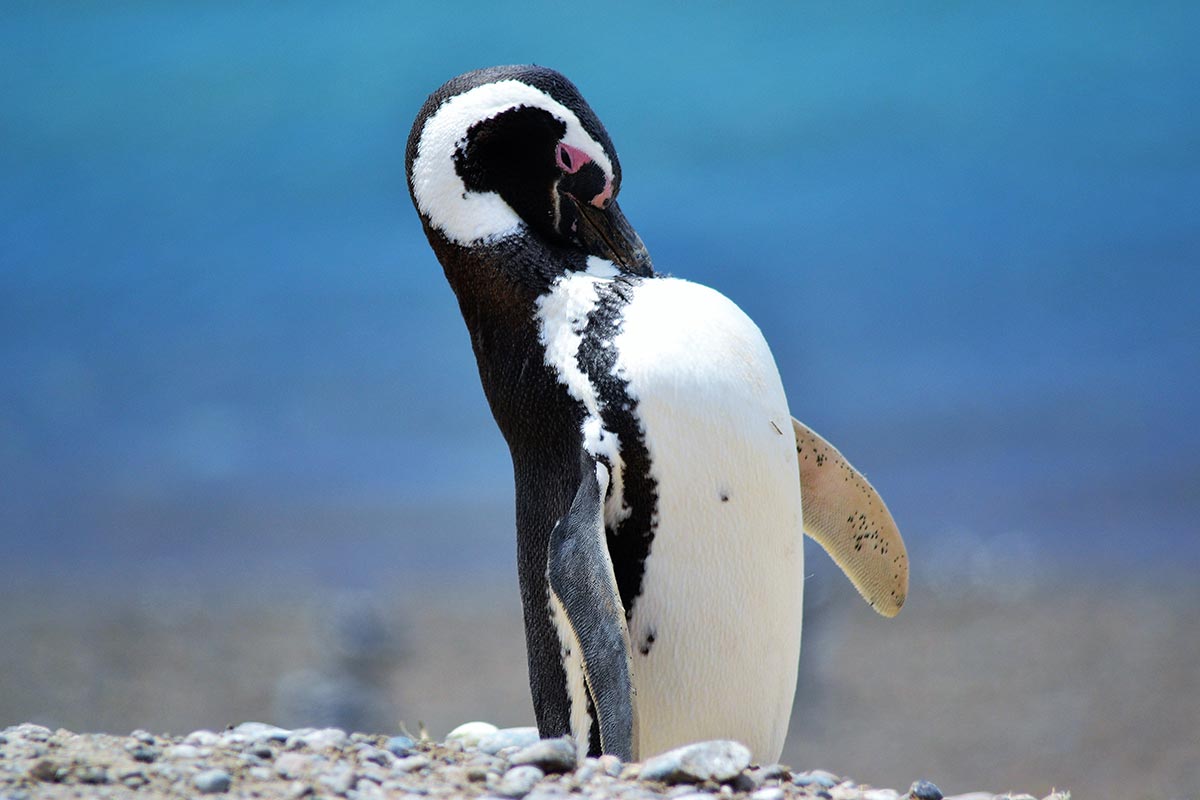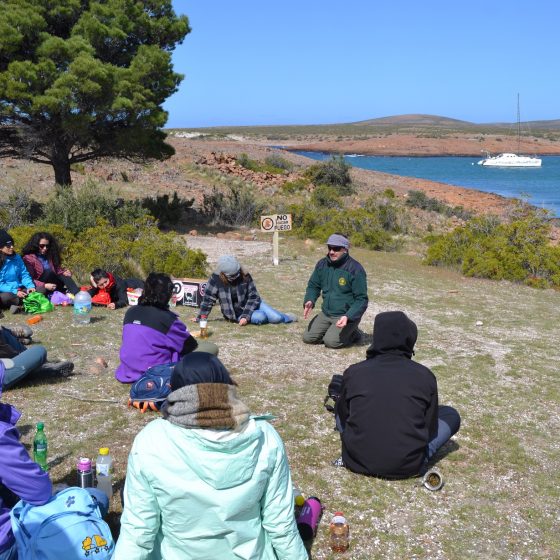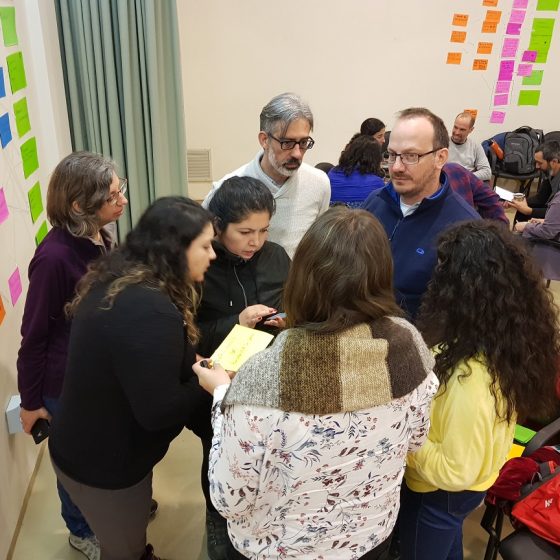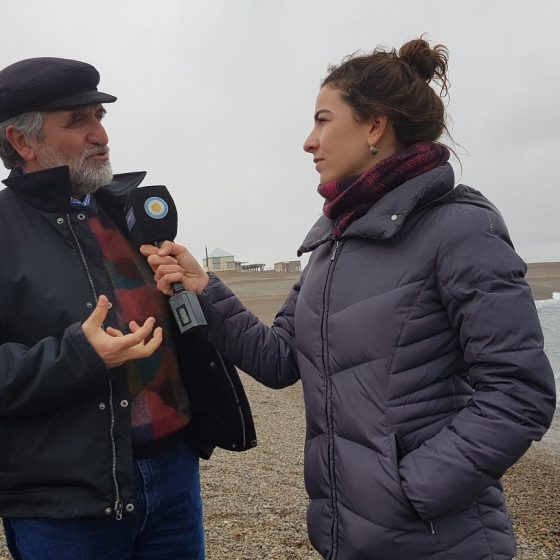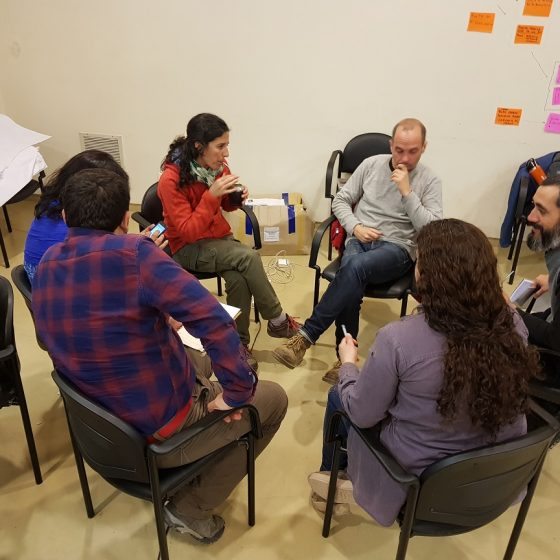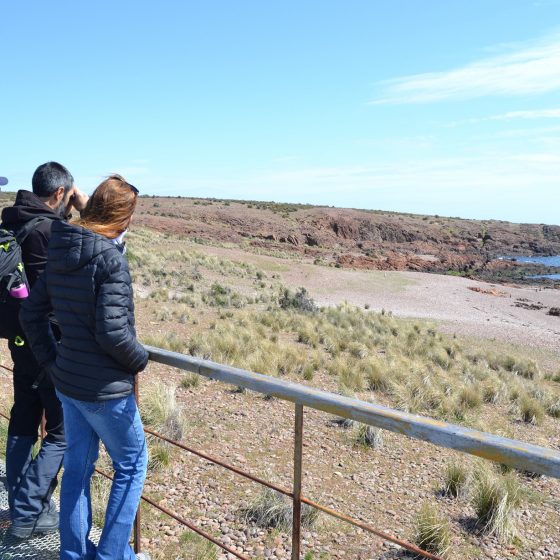Managers of Marine Protected Areas in Argentina, Chile and Uruguay met from October 18 to 22 in Camarones, Chubut (Argentina), to strengthen their competence and management skills, in order to help improve the outcome of marine conservation in the region.
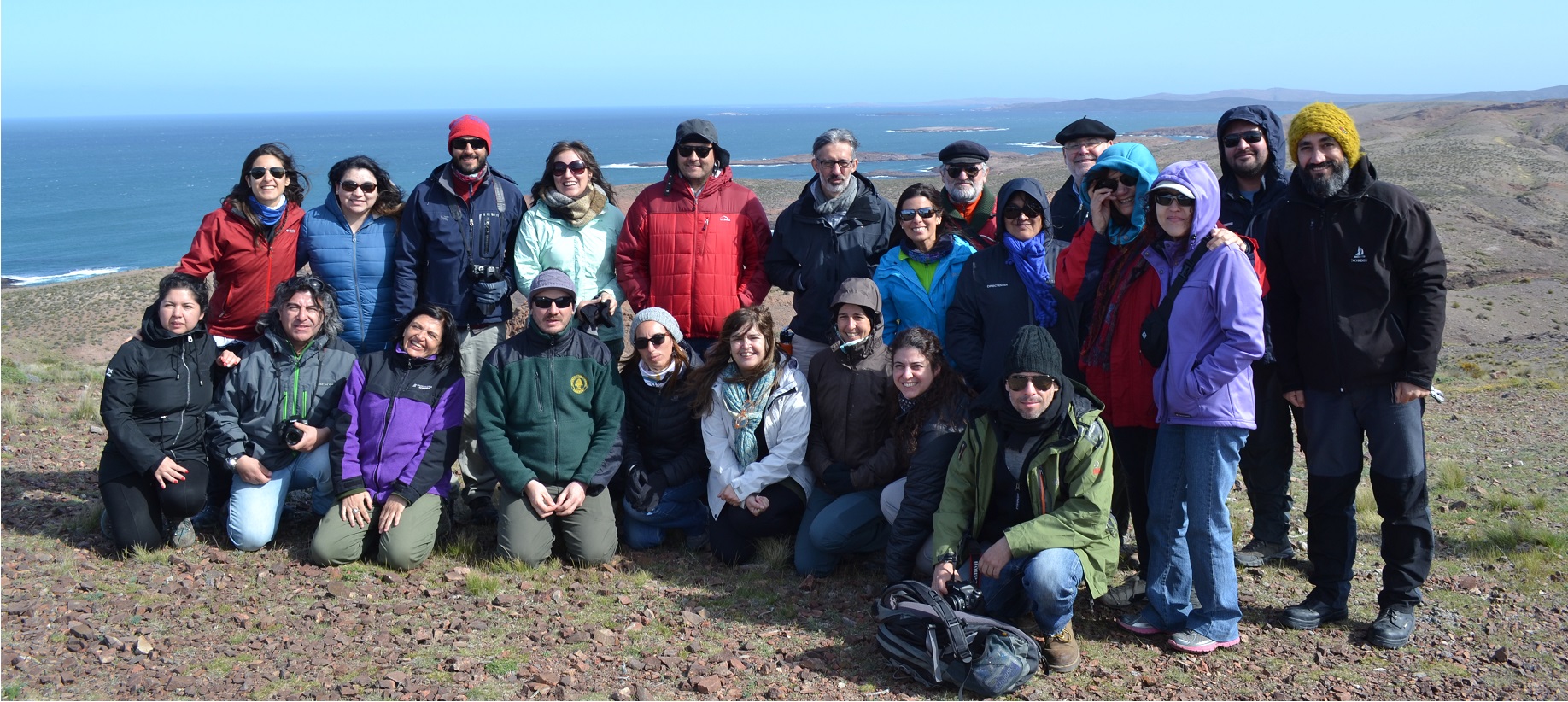
Course participants in the Patagonia Austral Interjurisdictional Coastal Marine Park
The second edition of the School for the Management of Marine Protected Areas of the Southern Cone brought together 20 managers, administrators, consultants and supervisors of 13 Marine Protected Areas (MPAs) distributed throughout the Patagonian Sea.
MPAs are zones created to preserve environments and species, and to ensure the sustainable use of their resources. If well managed, they generate environmental, social and economic benefits, which can be crucial for coastal communities and regional economies since they can favor activities such as fishing and nature tourism, for example.
However, many MPAs of the Southern Cone are not fully effective as a result of the usual shortcomings of the countries in question. One of them comes from the fact that these are new tools, and it is necessary to have development plans and teams specialized in marine management.
This year the School for the Management of MPAs contributes to the development of skills in the design and implementation of processes for the elaboration of management plans for MPAs, through both virtual and face-to-face activities.
The face-to-face stage took place at the PIMPCPA. This AMP was created in 2009 with the goal of protecting the ecoregion of the Argentine Sea and the Patagonian coast, in a place where the richness and abundance of marine life stand out. It is managed by both the National Parks Administration and Chubut Province.
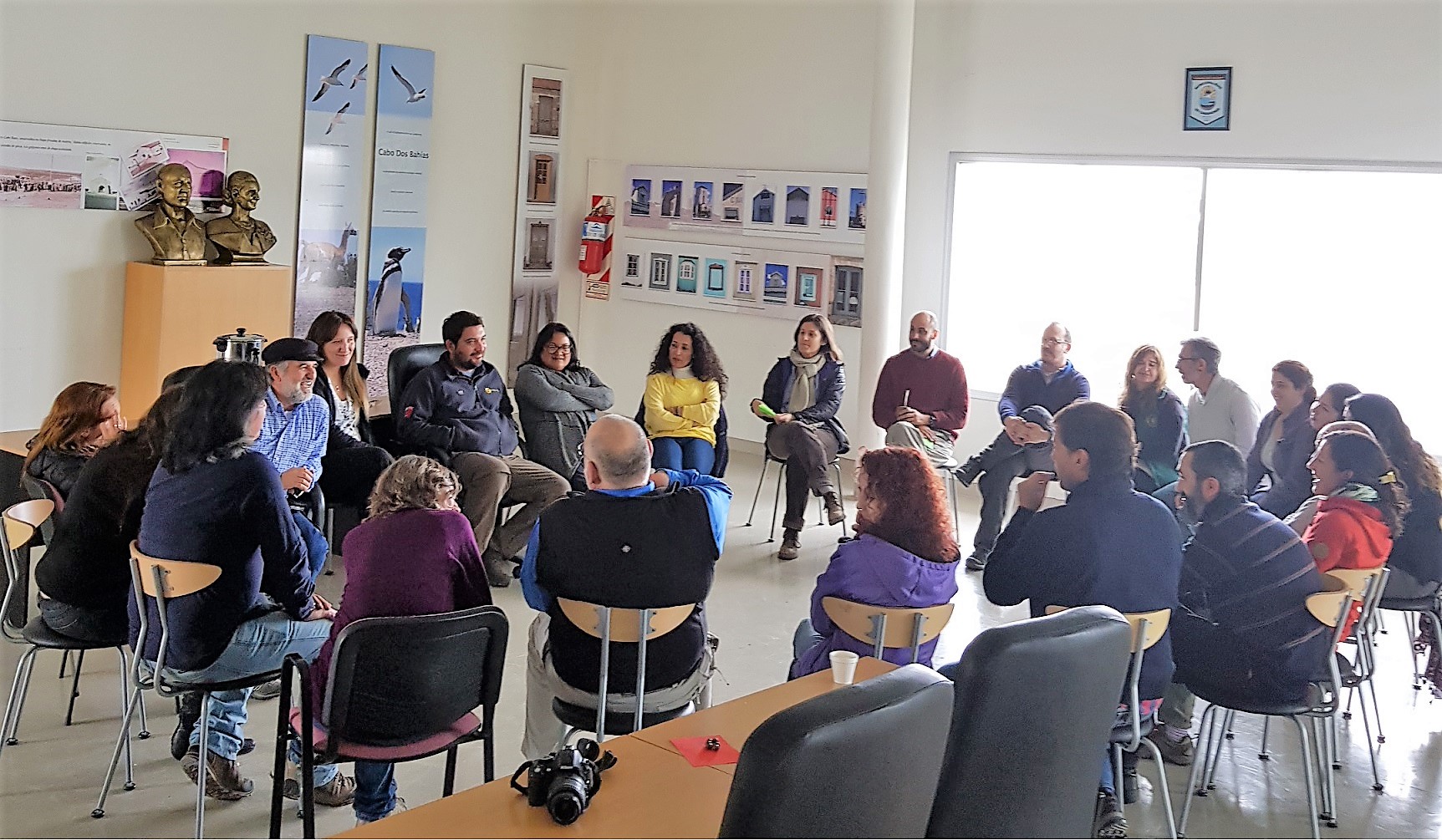
The face-to-face activities are fundamental in order to walk along the MPAs and understand their particularities from a practical approach that complements the theory addressed in the virtual classroom. Another achievement this week was the strengthening of the learning networks built among participants, teachers and coordinators from the three countries. The regional approach and the support networks are key, because challenges in the Southern Cone have a lot in common, and this results in the optimization of the effort and leads to better results.
The School of AMPs, declared to be “Of Interest” by the Honorable Chamber of Senators of Argentina in November of 2017, is driven by the Forum for the Conservation of the Patagonian Sea together with the National Parks Administration of Argentina, the Ministry of Environment of Chile and the Ministry of Housing, Land Planning and Environment of Uruguay. The implementation effort is coordinated by the Argentine Wildlife Foundation, the Wildlife Conservation Society (WSC) Chile and the World Wide Fund for Nature (WWF) Chile, and it is sponsored by Oceans 5, WWF Netherlands, ALUAR and Waitt Foundation.
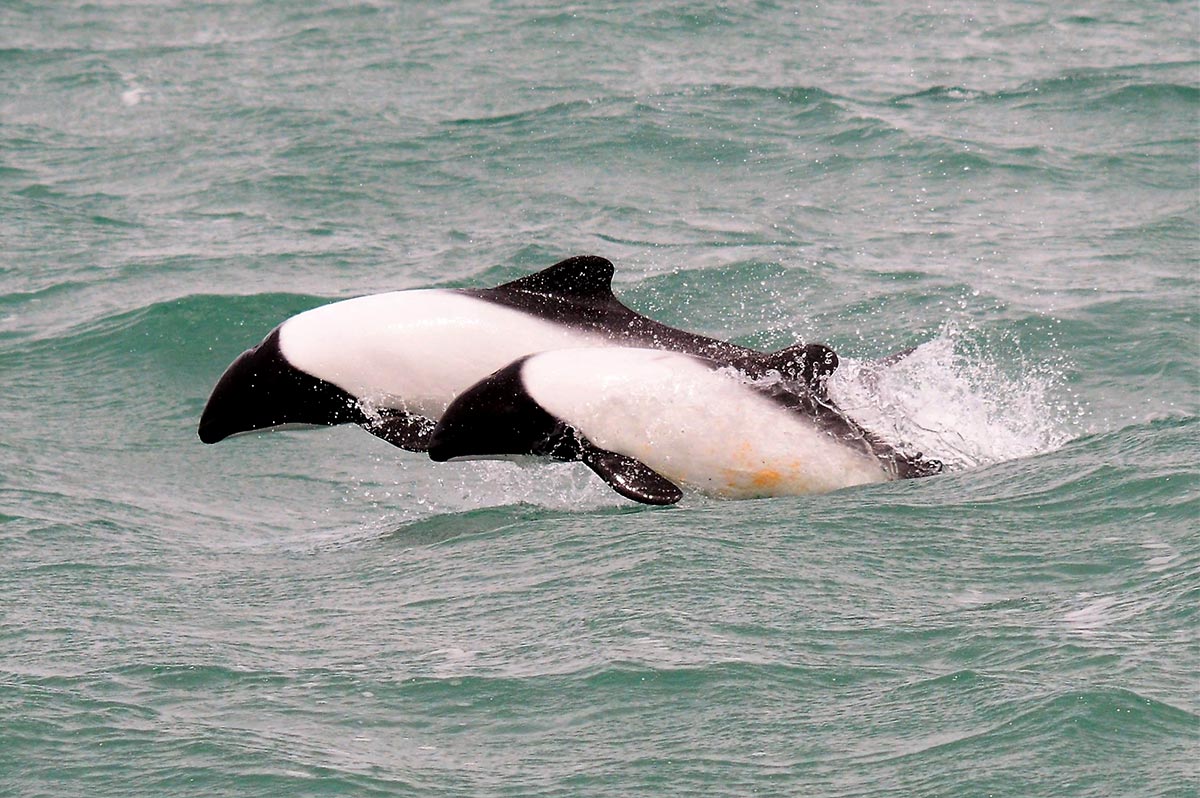
The emblematic Magellanic penguin and panda dolphins are part of the remarkably lavish marine biodiversity of the PIMCPA.
